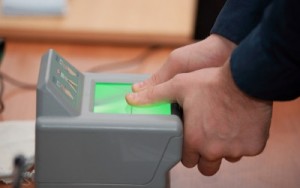
TheInternationalForecaster.com
September 22, 2015
When Kyrgyz voters go to the polls for parliamentary elections on October 4th, there will be more at stake than just domestic issues or regional geopolitics. Although this is being called one of “the most important elections in Central Asia’s post-Soviet history” and a chance to restore Kyrgyzstan’s image as Central Asia’s “best hope for democracy,” next month’s vote will set a precedent of a very different sort.
Due to a law passed last July, all would-be ballot casters must submit their biometric data (in this case, all ten fingerprints, combined with their digital photo and signature) in order to be eligible to vote.
Ostensibly a way to escape the bad old days of ballot box shenanigans and vote fraud tomfoolery, this is a classic case of the cure being worse than the disease.
There are, of course, technical difficulties that are threatening to make the results of this election just as unreliable as the country’s previous ones. Given that the biometric voting law was only passed a little over a year ago, and given that the process of submitting the biometric data is cumbersome at best (and nearly impossible for the 600,000 or so Kyrgyz migrant laborers in Russia), it is perhaps unsurprising that a large percentage of the public is not registered to vote in the coming election. Of a population of around 5.8 million people, the country’s Prime Minister is able to boast of just 2.78 million registered voters in the upcoming election (down from 2.85 million in the previous election).

In other words, there is a very real possibility that there will be chaos on election day as people who thought they were able to vote get turned away at the polls.
There is also the effective disenfranchisement of the country’s migrant laborers. With hundreds of thousands working abroad to send money back to their family, taking time off work to travel to a Kyrgyz diplomatic office to submit their biometric details and then returning again on election day to cast their ballot would be cumbersome enough. That situation was made even worse by the fact that until recently there was only one Kyrgyz office in all of Russia where such processing could be done, although other polling places are now available in Moscow and Saint Petersburg.
But concerns about the technical difficulties of the process miss the real point. Although no one is required to submit any details to the government, those who believe their vote is their voice in choosing the direction of the country are now forced to give such details in order to participate in elections.
Kyrgyzstan is not the only country on the path to a biometric voting system. India has long had plans to roll its monumental billion-person biometric national ID system into a biometric voter card, and the latest reports indicate that the card may be coming as soon as the end of the year. Elections with biometric voter cards took place in Nigeria earlier this year and were likewise plagued by technical issues.

This is an insidious process, and we’re just starting to see the birth pangs of it in these new biometric elections. And rest assured, regardless of whether these elections go off without a hitch or are a technical nightmare, there will be no going back to non-biometric voting for the people of Kyrgyzstan.
To their credit, the people of Kyrgyzstan already know this. As one outraged citizen noted when Kyrgyzstan began forcing would-be travelers to submit biometric data for their passports last year:
Biometric passports contradict the main principles of the democracy. Don’t lie to the people of Kyrgyzstan. This policy will lead to totalitarian control.








0 Comments